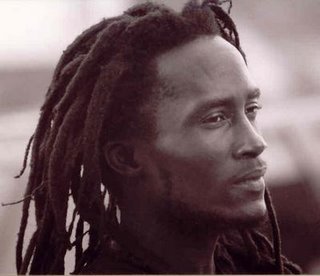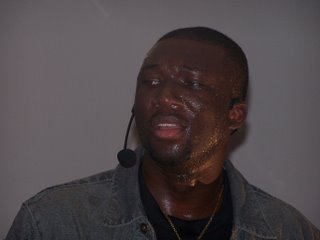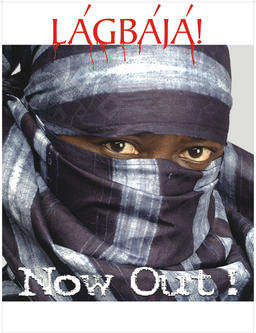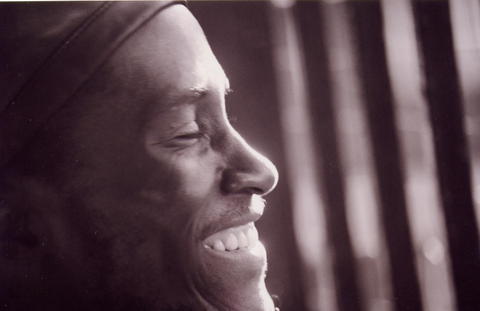May 27, 2006
Desmond Dekker, 64, Pioneer of Jamaican Music, Dies
By JON PARELES
Desmond Dekker, the Jamaican singer whose 1969 hit, "The Israelites," opened up a worldwide audience for reggae, died on Wednesday. He was 64.
He died after collapsing from a heart attack at his home in Surrey, England, his manager, Delroy Williams, told Reuters.
"The Israelites" was the peak of Mr. Dekker's extensive career, selling more than a million copies worldwide. He was already a major star in Jamaica and well known in Britain. The song was his only United States hit, but it was a turning point for Jamaican music among international listeners.
The Jamaican rhythm of ska had already generated hits in the United States, notably Millie Small's 1964 hit, "My Boy Lollipop." But that song was treated as a novelty. "The Israelites," with its biblical imagery of suffering and redemption, showed the world reggae's combination of danceable rhythm and serious, sometimes spiritual intentions.
Mr. Dekker was named Desmond Adolphus Dacres when he was born in Kingston, Jamaica, in 1941. As a teenager he worked in a welding shop alongside Bob Marley and auditioned unsuccessfully for various producers until Mr. Marley encouraged him to try out for his own first producer, Leslie Kong.
Mr. Kong produced Mr. Dekker's first single, "Honour Thy Father and Mother," in 1963, and it reached No. 1 in Jamaica. Like many of Mr. Dekker's songs, it carried a message. A string of Jamaican hits followed, including "It Pays," "Sinners Come Home" and "Labour for Learning." Mr. Dekker had a total of 20 No. 1 hits in Jamaica.
A series of songs including "Rude Boy Train" and "Rudie Got Soul" made Mr. Dekker a hero of Jamaica's rough urban "rude boy" culture.
His 1960's songs used the upbeat ska rhythm, a precursor to reggae also known as bluebeat. By the end of the decade, Mr. Dekker had won the Golden Trophy award, presented annually to Jamaica's top singer, five times and was known as the King of Bluebeat. He won the Jamaican Song Festival in 1968 with "Intensified."
"Honour Thy Father and Mother" was released in Britain in 1964 on Chris Blackwell's Island label, which would later release Bob Marley's albums. Three years later, Mr. Dekker had his first British Top 20 hit with "007 (Shanty Town)," a tale of rude-boy ghetto violence - "Dem a loot, dem a shoot, dem a wail" - sung in a thick patois, which Americans would hear later as part of the soundtrack to the film "The Harder They Come" in 1972. Paul McCartney slipped Mr. Dekker's first name into the lyrics to the Beatles' ska song, "Ob-La-Di, Ob-La-Da," on "The Beatles" (also known as the White Album) in 1968, the year Mr. Dekker moved to England.
With "The Israelites," released in Jamaica in December 1968, Mr. Dekker had an international impact. "I was telling people not to give up as things will get better," he said in a interview last year for the Set the Tone 67 Web site.
"The Israelites" reached No. 1 in Britain and No. 9 in the United States in 1969. The song would return to the British charts in 1975 and was reissued as a single after being used in a commercial for Maxell recording tape in 1990.
Although Mr. Dekker had no further hits in the United States, he continued to have hits in England with "It Mek" in 1969 and the first recording of Jimmy Cliff's "You Can Get It if You Really Want" in 1970. But while Mr. Dekker kept up a busy performing career, the death of Mr. Kong in 1971 ended his streak of hits. He returned to the British charts with "Sing a Little Song" in 1975.
The punk era of the late 1970's brought with it an English revival of ska by groups like Madness and the Specials. Mr. Dekker's songs were rediscovered, and he was signed by Madness's label, Stiff Records. His 1980 album, "Black and Dekker," featured members of a venerable Jamaican band, the Pioneers, and Graham Parker's band, the Rumour. The British hitmaker Robert Palmer produced Mr. Dekker's next album, "Compass Point," in 1981. But in 1984 Mr. Dekker declared bankruptcy, blaming his former manager.
In 1993, the Specials reunited and backed up Mr. Dekker on the album "King of Kings," with remakes of ska hits. In 2000 he released the album "Halfway to Paradise." He continued to tour regularly; his final concert was on May 11 at Leeds University.
Mr. Dekker was divorced and is survived by a son and daughter.
Copyright 2006 The New York Times Company




